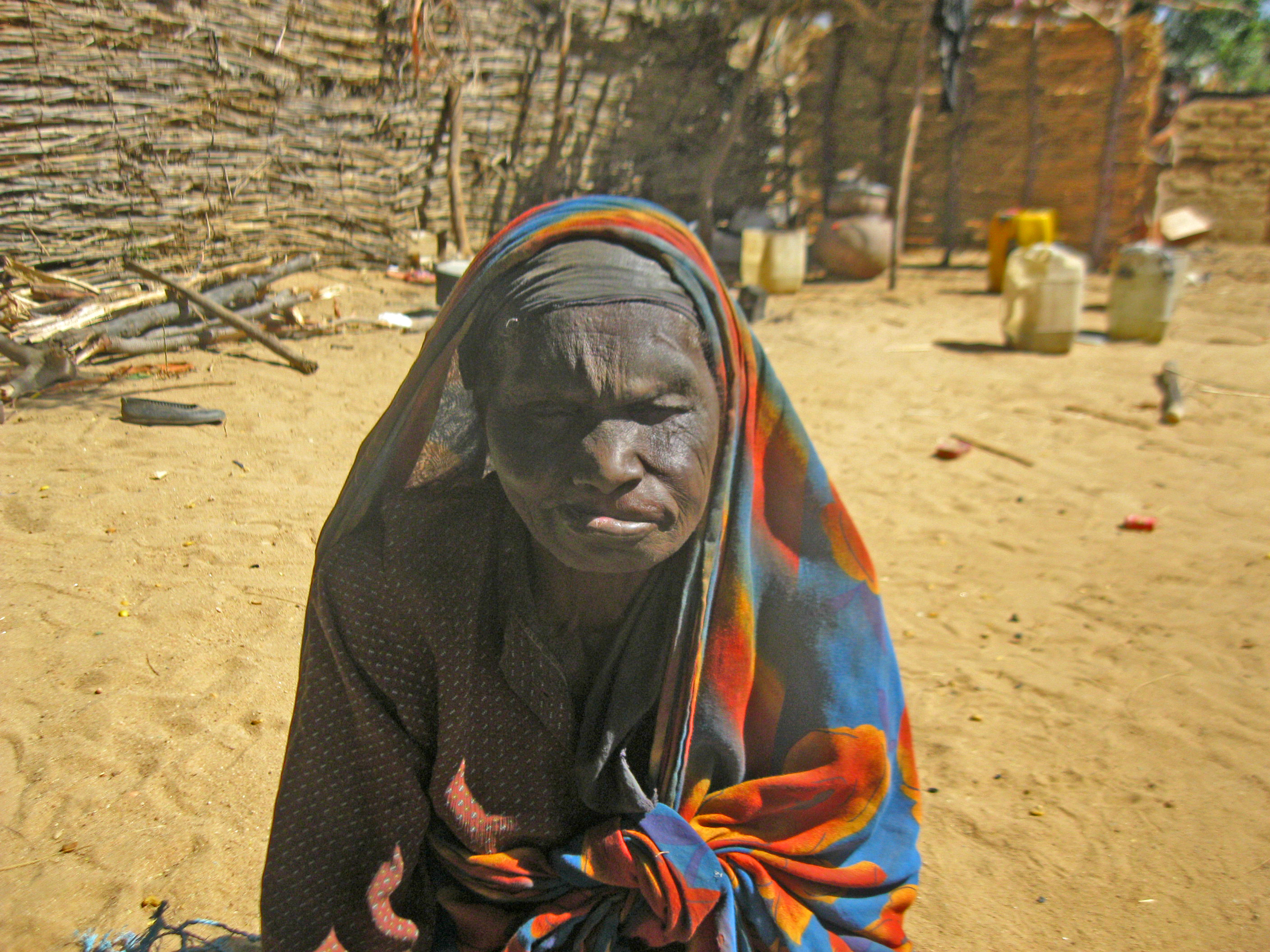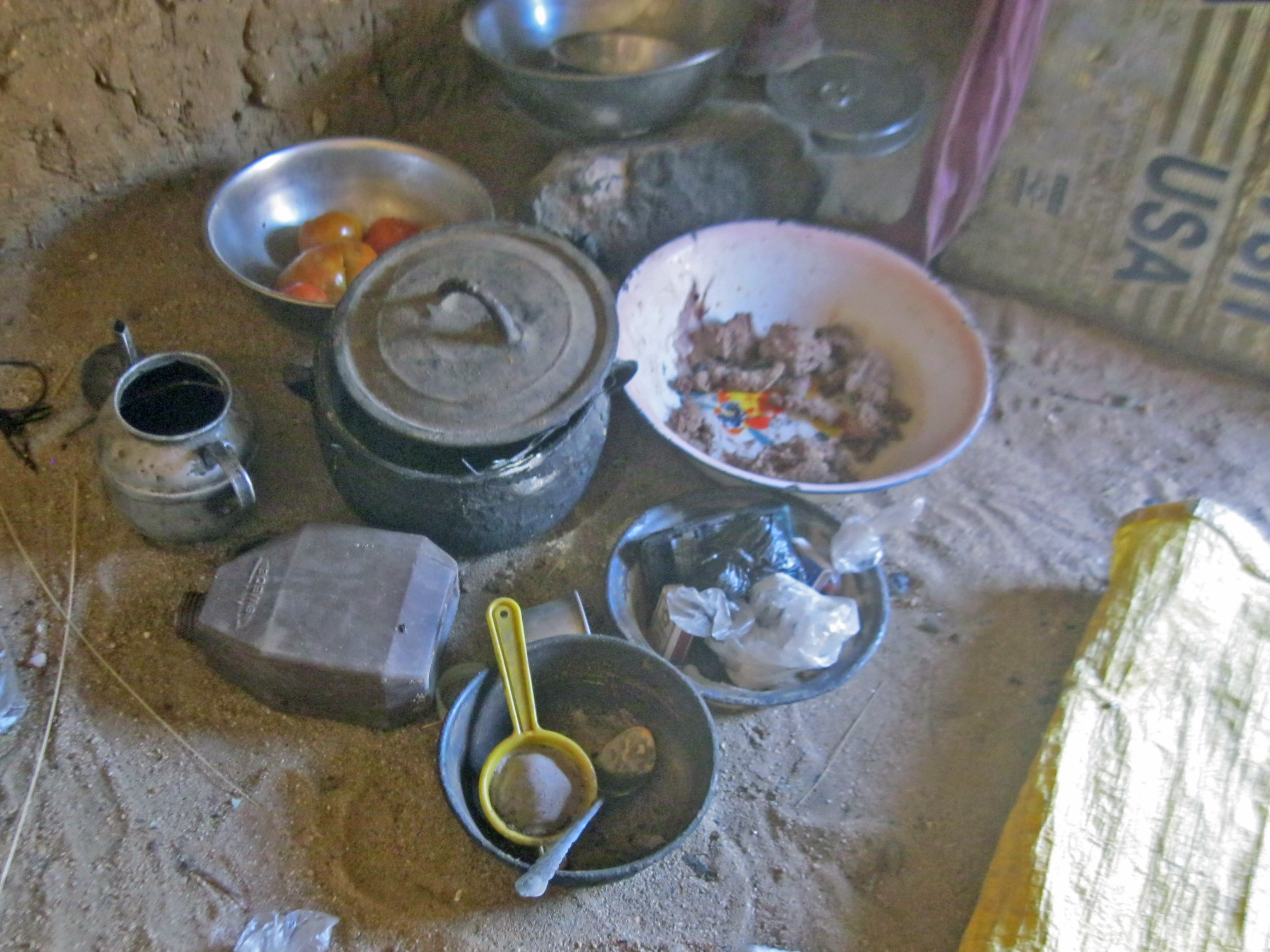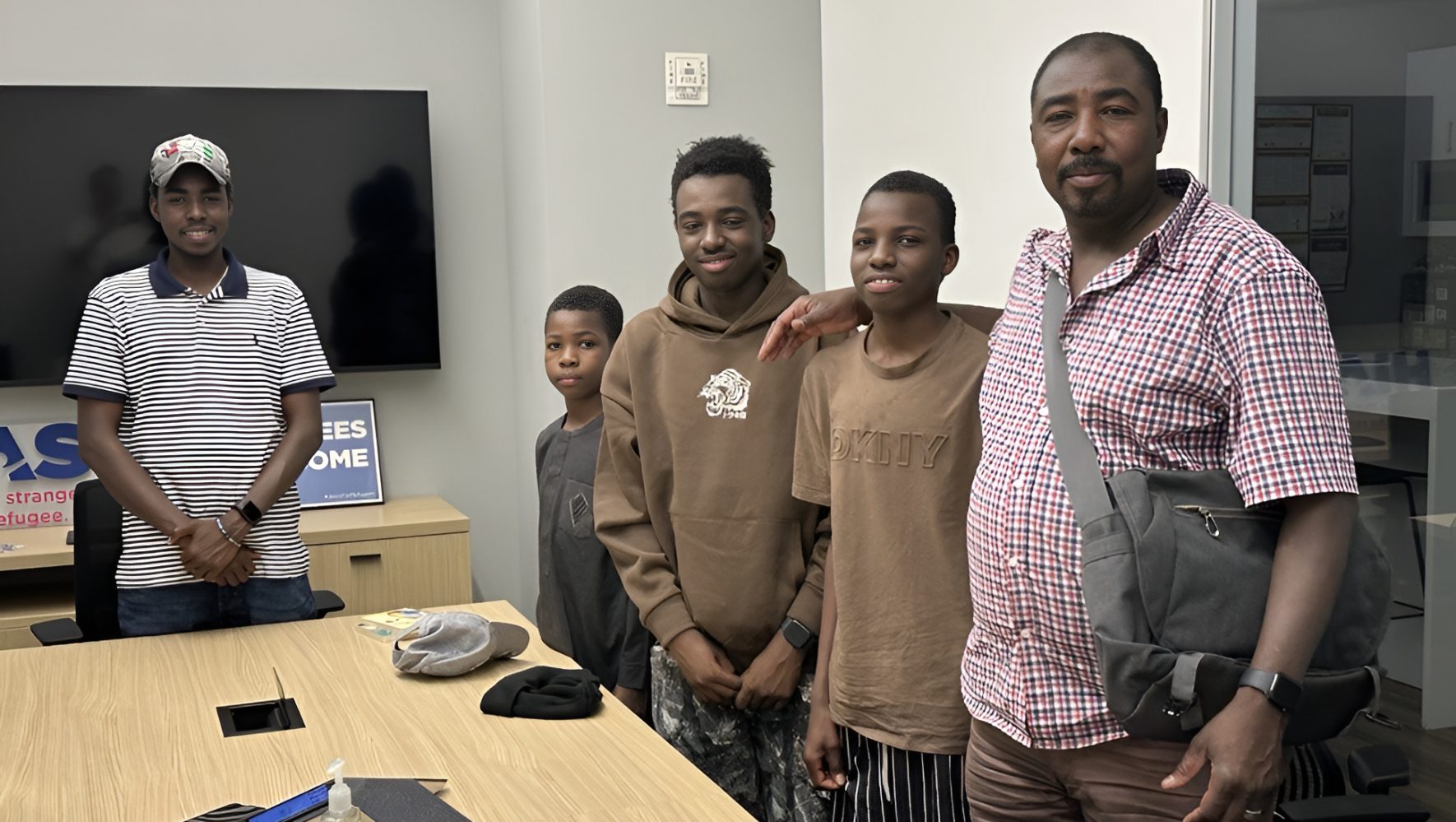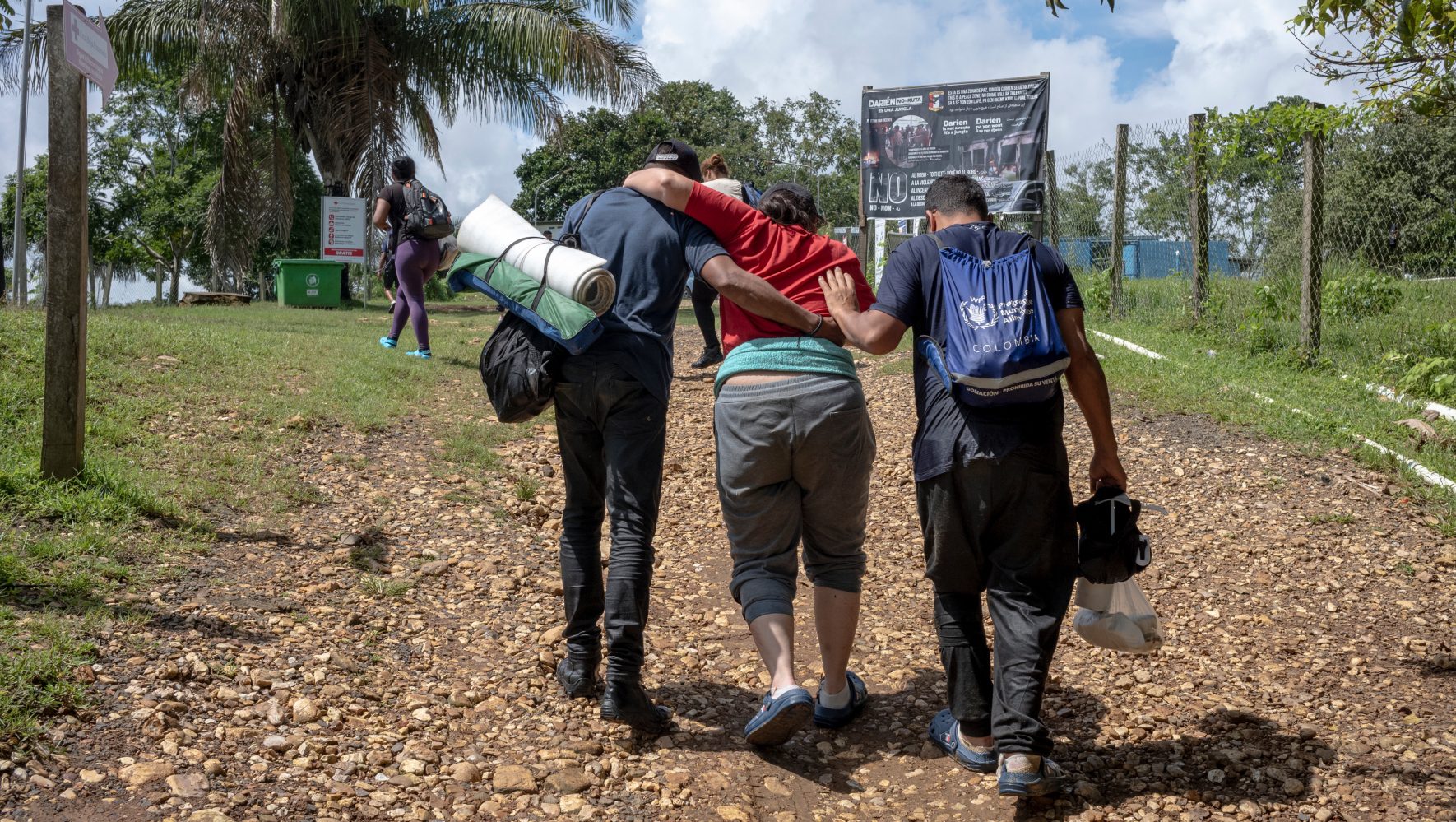Slow Motion Crisis: Yaya's Story
By Rachel Nusbaum, HIAS.org
Apr 11, 2016
Hawaye Djouma Yaya was born in Kadamoule, Sudan in 1940. But for the last decade she has called Bredjing refugee camp her home.
Bredjing is one of 12 camps located in eastern Chad, near the border with Sudan. It is home to more than 40,000 refugees. Yaya lives in block 27, along with her daughter and five grandchildren.
"I am old, handicapped and blind. My daughter is a single mother with five children," Yaya recently told Abdoulaye Mahamat of HIAS Chad, who was doing home visits with refugees in Bredjing. "We have no one to provide for us and we are at the mercy of God."
As we recently reported, due to funding shortages, the World Food Program has had to reduce food assistance to vulnerable refugees in Chad. Yaya is just one of the nearly 500,000 such refugees struggling to cope with the cuts.
Even before this reduction, the food basket was small and extremely basic. A sack of grains, some enriched flour (a special blend of corn and soy called CSB), a little sugar, a little salt, some oil and a single piece of soap. Although that was meant to feed the whole family for a month, it wasn't enough.
Then came the cuts.
Today, they're getting only about a third of the grains and just over half the oil they used to receive each month. The sugar and the soap have disappeared entirely.
"At most this quantity feeds us for 5 days," Yaya says.
Because she is elderly and handicapped, it falls to Yaya’s daughter to try to provide for the family for the remaining twenty-plus days of each month. "My daughter has to go to the bush to look for firewood which she then sells in the market to buy food for us, Yaya said. She also goes with her daughter to transport bricks for people, hoping to get some money to bring food home. With the cuts, it's the only way for them to survive. But it's not easy and it's certainly not without risk.
"Poverty and vulnerability expose my daughter to all manner of risks as she tries to fend for the family. Men take advantage of her, and she has been sexually violated several times while in the bush looking for firewood." Yaya broke down and wept as she described these ordeals, which her daughter braves for the sake of the family.
Their situation is by no means unique here, says Joyce Kanja, director of HIAS Chad. Women become particularly vulnerable in this context, as the need to support their family drives them into dangerous situations.
Girls go out to look for small jobs, food for their family or firewood, “and in the process they are violated. They are sexually abused,” says Kanja.
For now, Yaya and her family continue to hope that the food assistance they rely on will be restored, at least to prior levels, so that her daughter will not have to take such risks so often.
“If this is going to end," says Kanja, "it’s going to end from people raising awareness and raising funds. It's not going to change unless pressure comes from somewhere else.”






